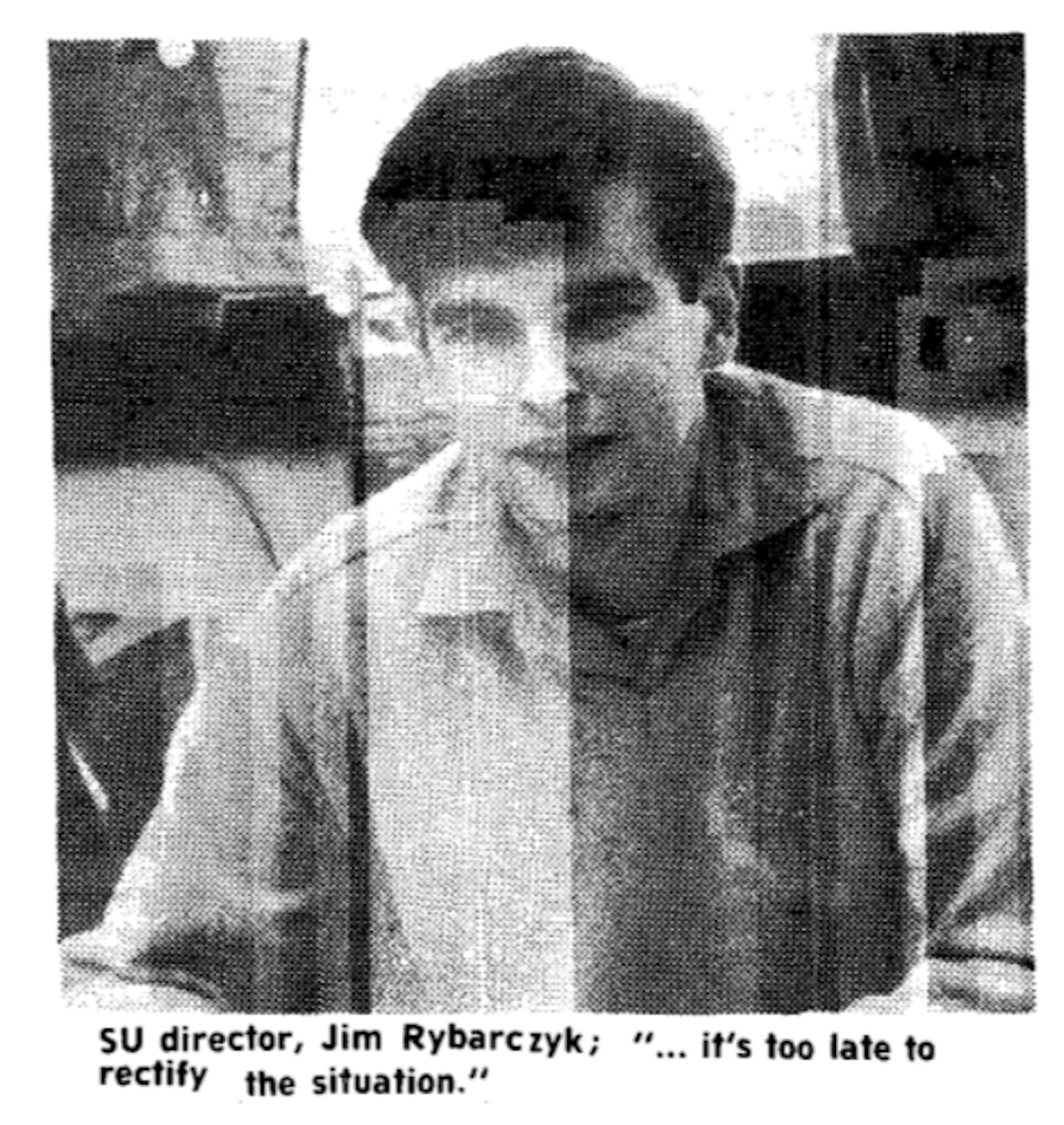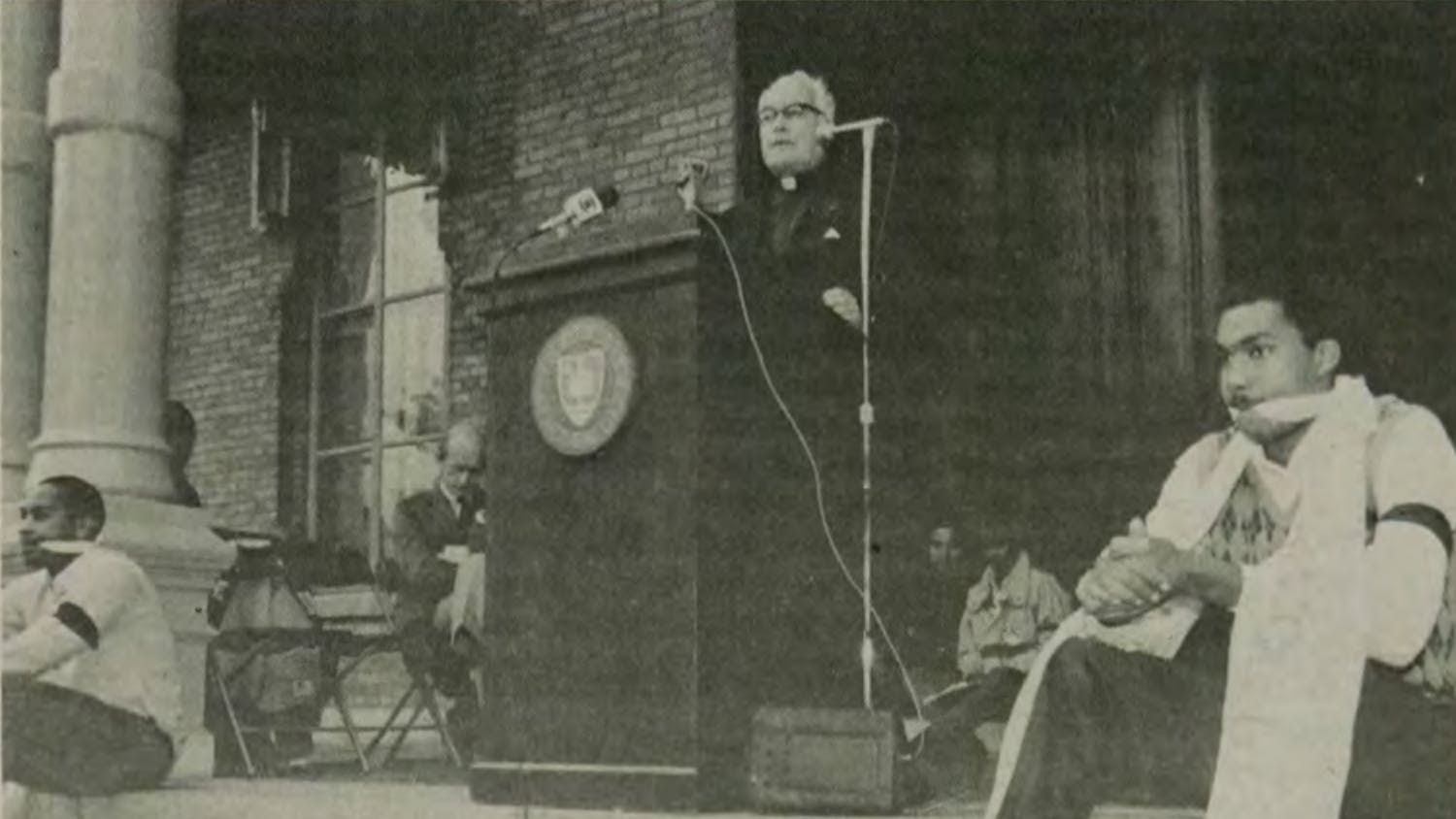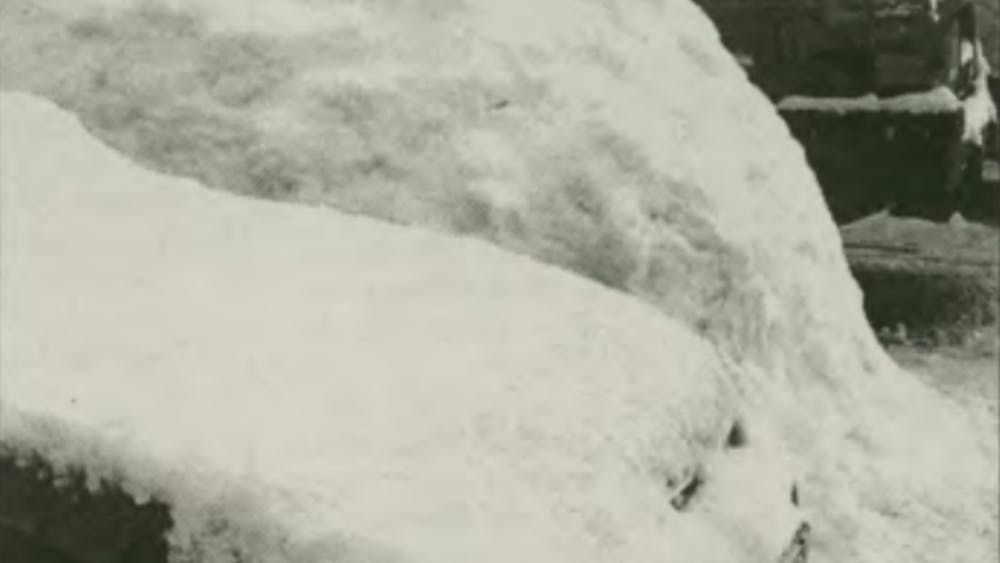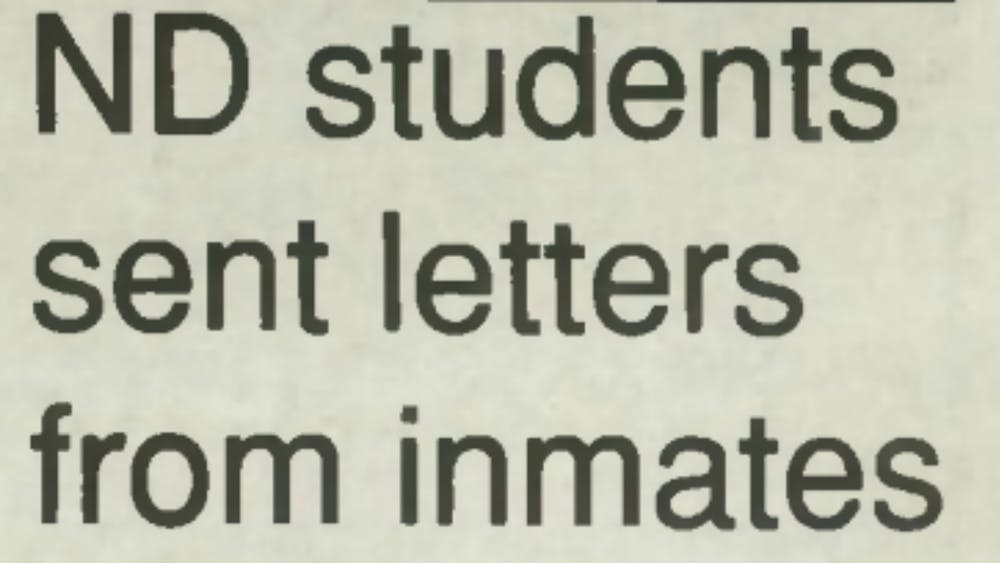
Student union director brought under fire for alleged ticket scandal
Oct. 4, 1973 | Jerry Lutkus | Researched by Evan McKenna
In October of 1973, student union director Jim Rybarczyk found himself under intense scrutiny. Of the 500 tickets secured by the student union for the upcoming USC game, only 446 were sold to students. The remaining 54 were set aside for purchase by student union commissioners and personnel, a decision that sparked controversy and calls for his impeachment. The scandal began in late September, when student body president Dennis Etienne and Rybarczyk met to discuss the distribution of tickets entrusted to the student union. The two campus leaders gave different accounts of the meeting. Etienne claimed they agreed to reserve 20 tickets to be raffled off among members of student government and the student union. But Rybarczyk said he thought the student union was distributing tickets both through a raffle and the sale of preferential tickets. Under Rybarczyk’s direction, three tickets were raffled off and 51 tickets were sold preferentially.
Student union director Rybarczyk impeached
Oct. 8, 1973 | R. Thomas Thues | Researched by Sarah Kikel
On Oct. 8, 1973, Observer news writer junior R. Thomas Thues reported student union director and senior Jim Rybarczyk had been unanimously impeached by the Student Body Board of Commissioners. In a statement, the board explained their decision extended beyond the ticket scandal. Rybarczyk’s preferential sale of tickets to student union personnel was the “culmination of events reflecting the director’s attitude … [an attitude which] jeopardizes the essential function of the student union.”
Letter to the editor voices distrust toward Board of Commissioners
Oct. 9, 1973 | James Clarke | Researched by Mary Steurer
In an Oct. 9, 1973 letter to the editor, senior James Clarke (‘74) argued the student body had reason to distrust the Board of Commissioners’ move to impeach Rybarczyk.“It seems to be common now for public persons to be accused and faced with impeachment for acts they have performed in office,” he wrote — easily a nod to Nixon’s impeachment, which would not begin until later that month but had been in conversation since the Watergate hearings that May.Without saying so outright, Clarke warned the Board of Commissioners against impeaching Rybarczyk just to look good. Pulling Rybarczyk from office was not enough, he argued — the board must also detangle the bureaucratic knot that caused the controversy.“If we are to have any justice, the board should now forget all thoughts concerning principle and seek the actual truth concerning Mr. Rybarczyk’s duty to restrict the number of tickets,” he wrote. “Or was it the duty of the Board of Commissioners or the Student Union Board of Directors to set the policy for ticket distribution? Clarke urged the Board of Commissioners to be deliberate in their work — when scandal erupts, there is no room for political posturing, he wrote.“Jim Rybarczyk has a right to a fair and unprejudiced trial. A trial free of political questions. A trial based solely on facts,” the letter said.Impeachment charges against Rybarczyk dropped
Oct. 16, 1973 | R. Thomas Thues | Researched by Jim Moster
On Oct. 16, 1973, The Observer reported Rybarczyk’s impeachment saga had reached its conclusion. During a private meeting, the Student Body Board of Commissioners agreed to halt Rybarczyk’s impeachment proceedings. The board reconsidered Rybarczyk’s charges of “mismanagement” and “failure to cooperate with student government.” Rybarczyk disagreed with the premise of the first charge, arguing “his commissioners were directly responsible for student union activities.” As for the second charge, Rybarczyk attributed the lack of cooperation to “communication problems.”Rather than impeaching Rybarczyk, the board decided to focus on improving communications between the student union and student government. Specifically, the board created a coalition of officers from both organizations to ensure they “can all work together to serve the students.”Rybarczyk expressed gratitude for the outcome of the proceedings. “I just want to get the student union back on its feet after this two-week dormant period,” he said. “It was a time of cooling off and working things out," student union associate director Ken Muth added.Although Rybarczyk maintained his position as student union director, it wouldn’t be long before another scandal blotted his administration. On Nov. 14, 1973, The Observer reported Rybarczyk would be graduating in December and thus vacating his office one semester early. Rybarczyk had previously stated he would not graduate early. However, Rybarczyk admitted he was considering the decision during the student union director selection process. “I did not make a definite decision until over the summer,” Rybarczyk said.Note: Rybarczyk could not be reached for comment at the time of publication.












